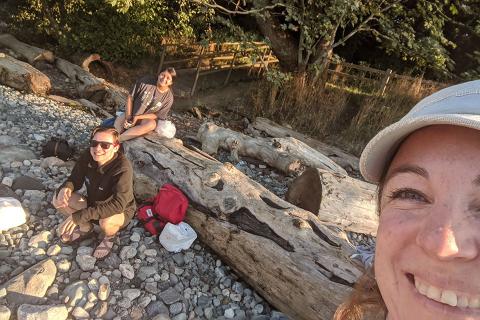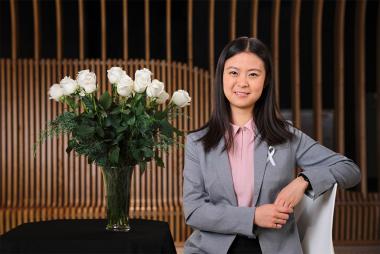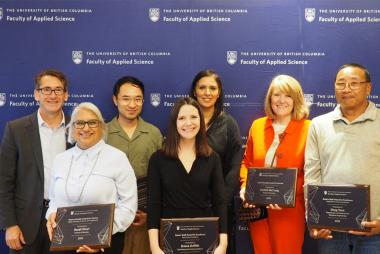How Applied Science faculty members are decolonizing their classes

June 14, 2021
Edited: June 29, 2022
The Truth and Reconciliation Commission’s Call to Action number 62 focuses on education:
We call upon the federal, provincial, and territorial governments, in consultation and collaboration with Survivors, Aboriginal peoples, and educators, to provide the necessary funding to post-secondary institutions to educate teachers on how to integrate Indigenous knowledge and teaching methods into classrooms.
There are many great resources and training sessions available to faculty members wishing to work on decolonizing or Indigenizing their syllabi, classrooms and teaching. The UBC Centre for Teaching, Learning and Technology collaborated with Applied Science to create a cohort-based series: The Indigenous Initiatives Design Series. This series walks participants through understanding position and place, sharing resources and perspectives. Faculty members are encouraged to attend - new sessions are offered each summer. Watch for future opportunities to participate in these in-depth collaborative learning opportunities on the Indigenous Initiatives website.
Indigenous Initiatives Home Page
Pamela Wolf, Assistant Professor of Teaching, Civil Engineering
Educational Leadership stream Assistant Professor of Teaching Pam Wolf co-created curriculum with UBC students, UBC Indigenous student leaders, and Indigenous community members. Funded by a SSHRC grant, the group convened to weave everyone’s perspectives together into three core competencies. With support from a Teaching and Learning Enhancement fund grant, they developed undergraduate curriculum to be used across Engineering. This curriculum trains faculty to use their professional and technical expertise to decolonize themselves and their classrooms.
This is enhanced by an Indigenization dialogue, which went (a little) viral globally in its fourth year as it went online. The Dean’s office support was critical in the logistics of this growth. A handful of values-driven faculty took on the challenge of decolonizing themselves and their classrooms this year by piloting the assignments, rubrics, and coaching provided. Their enthusiasm, and the enthusiasm received from their students has created a unique opportunity at UBC for engineering-wide change in practices. This type of scaled curriculum program is unique to UBC. We will be graduating students who have started the practice of decolonizing and Indigenizing design work in their discipline.
John Bass, Associate Professor, School of Architecture and Landscape Architecture (SALA)
Professor John Bass has worked with Indigenous communities in a collaborative way, supporting communities through his expertise and refined skill set for over 18 years at UBC, wherein Bass has worked—and continues to work – in the arena of collaborative, Indigenous, community-based research.
In the fall of 2020, John’s work with Yunesit’in came into the classroom in a SALA graduate design studio. The studio was done in collaboration with members of the Yunesit’in and Xeni Gwet’in communities of the Tsilhqot’in Nation, who are stewards of the Dasiqox Tribal Park (Nexwagwez?an), which was the focus of the studio.
In the winter term of 2021, John offered a studio working with the Huu-ay-aht First Nation for the design of a community cultural centre. This studio was done in collaboration with Huu-ay-aht elders, Executive Council members, cultural speakers, and technical staff.
John's Indigenous community engagement
Margaret Low, Assistant Professor, School of Community and Regional Planning (SCARP)
Maggie Low joined the School of Community and Regional Planning as assistant professor in the Indigenous Community Planning (ICP) program in September 2019. In her interview she pitched a graduate course about what reconciliation with Indigenous peoples could (and should) mean within the profession and discipline of planning. There was immediate support from SCARP faculty for such a course. Maggie and her dedicated teaching assistant, Erin de Sousa, developed the curriculum for a new elective course called Reconciliation and Planning (PLAN 548P) which explores how planners in what is now known as Canada can decolonize their planning practice.
Maggie delivered PLAN 548P in 2020 Winter Term 2 to nine bright, curious and passionate graduate students in the Faculty of Applied Science, and used online collaboration tools and Canvas to help build a brave learning community. Maggie tries to intentionally teach students to thoughtfully develop their own positionality. Maggie will be teaching another iteration of Reconciliation and Planning in 2021 Term 2.
As part of the Indigenous Community Planning program, Maggie has the privilege of co-teaching with Musqueam and supporting two students undertaking an eight-month practicum supporting planning with Qualicum First Nation.
Learn More
- Where to start? Read Keirra Webb's article about taking the first steps to decolonization and recognizing positionality.
- Consider reading or listening to this valuable and concise decolonization handbook which is a collection of writings by prominent Indigenous voices and knowledge keepers: Whose Land is it Anyway? A Manual for Decolonization. An audio version of this open-source resource by the Federation of Post-Secondary Educators is also available.
- The Indian Act, after over 140 years, continues to shape, control, and constrain the lives and opportunities of Indigenous peoples, and is at the root of many stereotypes that persist. Read or watch Bob Joseph’s 21 Things You May Not Know About the Indian Act or TVO Interview.
Call to Action
Consider the ways you interact within colonial structures (i.e. universities), and educate yourself on decolonialization, which is every Canadian's responsibility.


